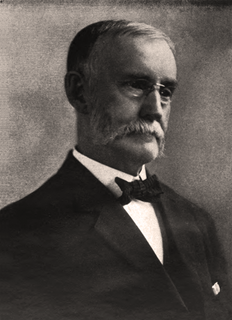A Quote by J. I. Packer
God then does not profess to answer in Scripture all the questions that we, in our boundless curiosity, would like to ask about Scripture. He tells us merely as much as He sees we need to know as a basis for our life of faith.
Related Quotes
We need to repent of the haughty way in which we sometimes stand in judgment upon Scripture and must learn to sit humbly under its judgments instead. If we come to Scripture with our minds made up, expecting to hear from it only an echo of our own thoughts and never the thunderclap of God's, then indeed he will not speak to us and we shall only be confirmed in our own prejudices. We must allow the Word of God to confront us, to disturb our security, to undermine our complacency and to overthrow our patterns of thought and behavior.
We often sometimes forget that- prior to the invention of removable pipe- there really were no English Bibles. We have treasures, we have Bibles in every size and shape and color. But there's a failure to recognize what's contained inside the cover of the Bible. We grow apathetic, and I think that the issue is reacting to the Word of God. Not just carrying, but get back into the Word of God and then get the Word of God into us. It's all about mining the scripture, memorizing the scripture, and meditating with our scripture.
Often God will send us what we need in a package we don't want. Why? To let us know He's God and we cannot second-guess Him. We cannot search for answers merely with our heads; we must seek Him and His provision with our hearts. Scripture cannot be interpreted from our limited human mental understanding. There must be a breath of the Spirit of God. He alone gives wise counsel and correct application.
In terms of applicability to today's world, many people are trying to domesticate Scripture so as to get the PC answer, the politically correct answer on a wide range of subjects, whether it's homosexual marriage, or a certain view of government, or a certain view of eschatology or whatever. At the end of the day we want also to encourage the kind of reverent handling of Scripture that wants to be corrected by Scripture, that is more eager to be mastered by Scripture then to master it.
The Bible is not a book like any other. It makes a claim that God spoke and speaks through its message. It argues that as his creatures, we are accountable to him for what he has revealed. The trustworthiness of Scripture points to its authority as well. Scripture is far more than a history book, as good and trustworthy as that history is. It is a book that calls us to examine our lives and relationship to God. Beyond the fascinating history, it contains vital and life-transforming truths about God and us.
We are to believe and follow Christ in all things, including his words about Scripture. And this means that Scripture is to be for us what it was to him: the unique, authoritative, and inerrant Word of God, and not merely a human testimony to Christ, however carefully guided and preserved by God. If the Bible is less than this to us, we are not fully Christ's disciples.
Let this point therefore stand: that those whom the Holy Spirit has inwardly taught truly rest upon Scripture, and that Scripture itself is self-authenticated. . . . Therefore, illumined by his power, we believe neither by our own nor by any one else's judgment that Scripture is from God; but above human judgment we affirm with utter certainty (just as if we were gazing upon the majesty of God himself) that it has flowed to us from the very mouth of God by the ministry of men.
We have no clear ideas of the agency of [demonic] spirits, nor is it necessary. The Scripture says little to satisfy our curiosity; but tells us plainly that he is always watching us, and desiring to sift us as wheat. I believe we give him no more than his due, when we charge him with having a hand in all our sins. I believe he cuts us all out abundance of work.
A devotional book, which takes a Scripture text, and so opens it for us in the morning - that all day long it helps us to live, becoming a true lamp to our feet, and a staff to lean upon when the way is rough - is the very best devotional help we can possibly have. What we need in a devotional book which will bless our lives - is the application of the great teachings of Scripture - to common, daily, practical life.





































